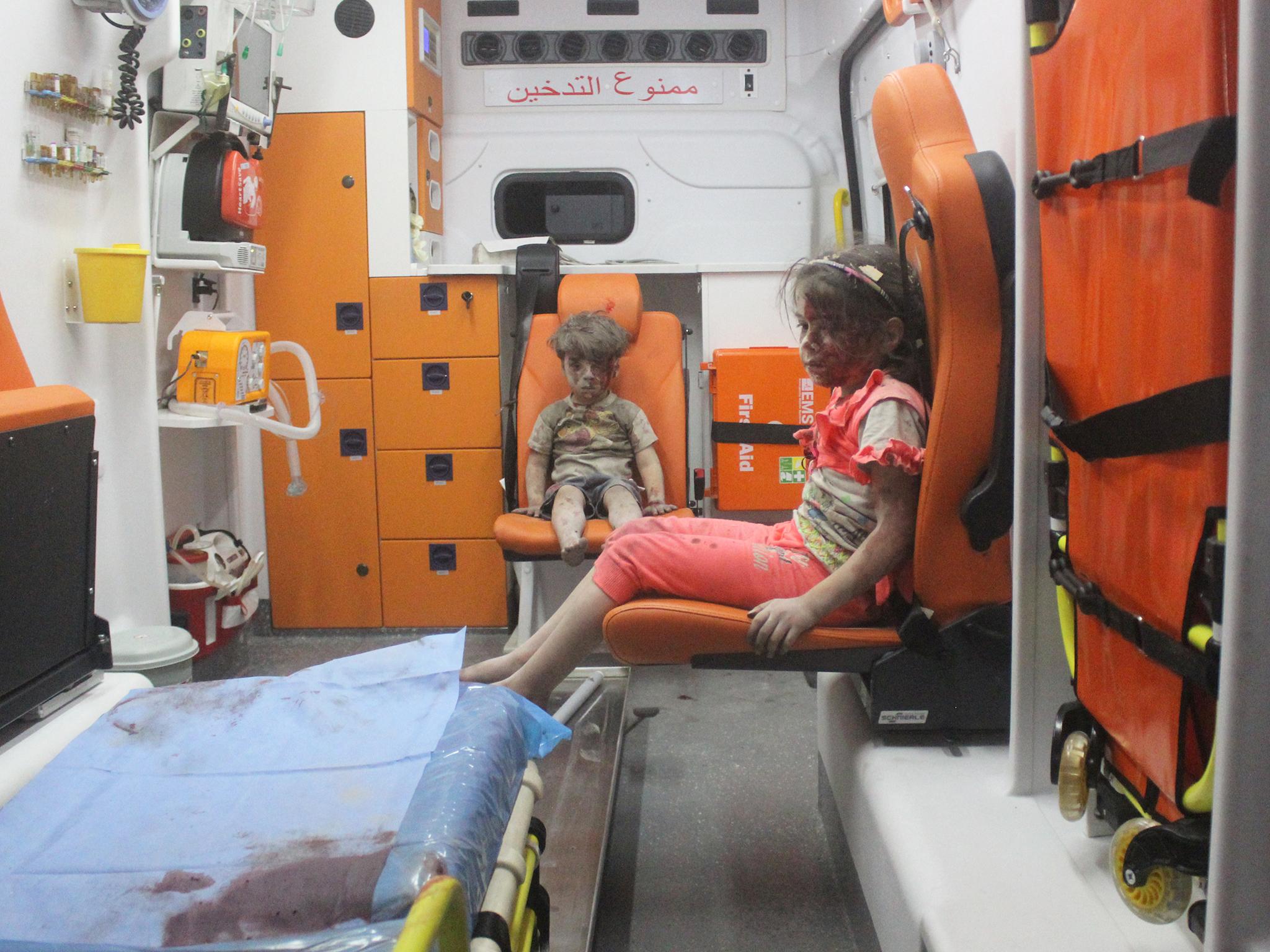The Independent's journalism is supported by our readers. When you purchase through links on our site, we may earn commission.
Don't tweet your concern for Omran Daqneesh and forget the Syrian children moving to the UK today
Over the past nine years 2,748 young people who have spent their formative years in the UK have been returned to countries including Afghanistan, Iraq, Iran, Libya and Syria – because their right to stay usually ends on their 18th birthdays

We’re all concerned for Omran Daqneesh’s welfare – but what about the children coming to the UK from the Calais Jungle today?
For a brief moment, it seemed as if the conflict in Syria had claimed the life of five-year-old Omran Daqneesh, the dazed and dust-covered boy who was miraculously pulled from the rubble of an airstrike in Aleppo and became a symbol of the country’s suffering.
Mercifully, the tweet from a Syrian journalist which implied Omran’s death proved to be based on incorrect information, and there was a collective, but short-lived, sigh of relief. But rescue workers say at least five children lost their lives in overnight airstrikes in Aleppo. According to the most recent estimates from I Am Syria, over 50,000 children in total have died as a result of fighting.
We should feel a similar semblance of short-lived relief about Amber Rudd’s decision to take in unaccompanied minors from the Calais Jungle. As preparations to demolish the sprawling camp begin, the Home Secretary, who two weeks prior set out her aims to “get immigration under control”, vowed to accept 300 lone child refugees into the UK.
Four Syrians and one Afghan arrived in the UK over the weekend and 10 will arrive on Monday, soon to be followed by another 10 on Tuesday, all of whom – including a potential 187 more children – qualify for relocation under the Dublin Regulation because they have family living in the UK. A further 209 unaccompanied minors will be eligible to live in the UK under the Dubs Amendment to the Immigration Bill passed in the House of Lords this year.
No, the myopic determination to reduce numbers and the post-Brexit bitterness towards migrants has not been replaced by compassionate conservatism. Yes, taking in these children is an act of compassion, but it is a kindness with an expiration date. And that date for unaccompanied minors coincides with their 18th birthday.
Serving time in the Calais Jungle does not mean that these children and teenagers will be given indefinite leave to remain in the UK. Instead it has become common practice to grant children “discretionary leave” – a sort of administrative purgatory until their 18th birthday when their case for asylum is assessed proper.
This quick fix means that as times moves on facts become blurred, inconsistencies begin being reframed as lies and proof becomes harder to source. This is compounded by the fact that these young people do not have any recourse to legal aid (apart from those claiming asylum under humanitarian grounds) to help them navigate the complex immigration system.
Overwhelmingly, appeals to remain in the UK are denied and the young person faces deportation. Over the past nine years 2,748 young people who have spent their formative years in the UK have been returned to countries including Afghanistan, Iraq, Iran, Libya and Syria – countries the Foreign Office advises Brits to avoid all travel to.
To avoid this fate, many young people begin to drop off the radar around the age of 17. In 2015 over 340 asylum-seeking children disappeared. Without access to the leaving care plans and public funds that had been helping them to build lives in the UK, children who disappear from the system like this inevitably find themselves destitute, sleeping rough and working in exploitative industries. Children don’t stop being vulnerable and deserving of attention when they turn 18, or when they no longer live in the UK – but according to Amber Rudd, that’s when our compassion should end.


Join our commenting forum
Join thought-provoking conversations, follow other Independent readers and see their replies